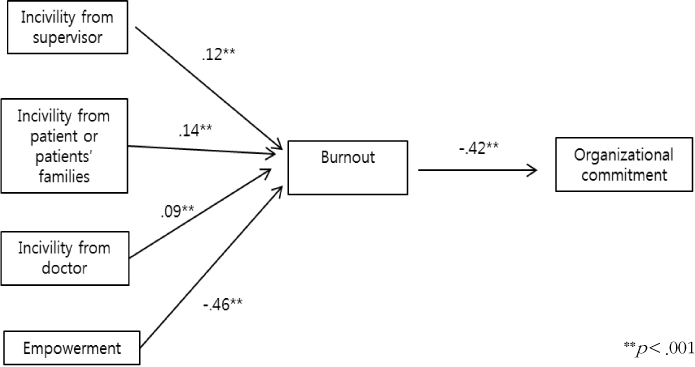1Department of Nursing, Mokpo University, Korea.
2Department of Nursing, Dankook University, Korea.
3Department of Nursing, Sunchon National University, College of Life Science and Natural Resources, Korea.
Copyright © 2013 Korean Academy of Nursing Administration
This is an open access article distributed under the terms of the Creative Commons Attribution Non-Commercial License (http://creativecommons.org/licenses/by-nc/3.0/), which permits unrestricted non-commercial use, distribution, and reproduction in any medium, provided the original work is properly cited.


General Characteristics of Participants (N=415)
The Rank of Incivility from Coworkers, Supervisors, Doctors, and Patients or Patients' Families
The Hierarchical Regression Model of Organizational Commitment
†R2 change.
*p<.05; **p<.001.
The Path Analysis of Workplace Incivility, Empowerment, Burnout, and Organizational Commitment
SMC=Squared multiple correlations.
**p<.001.
†R2 change. *
SMC=Squared multiple correlations. **